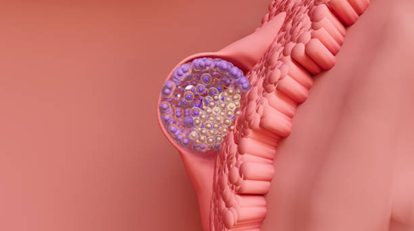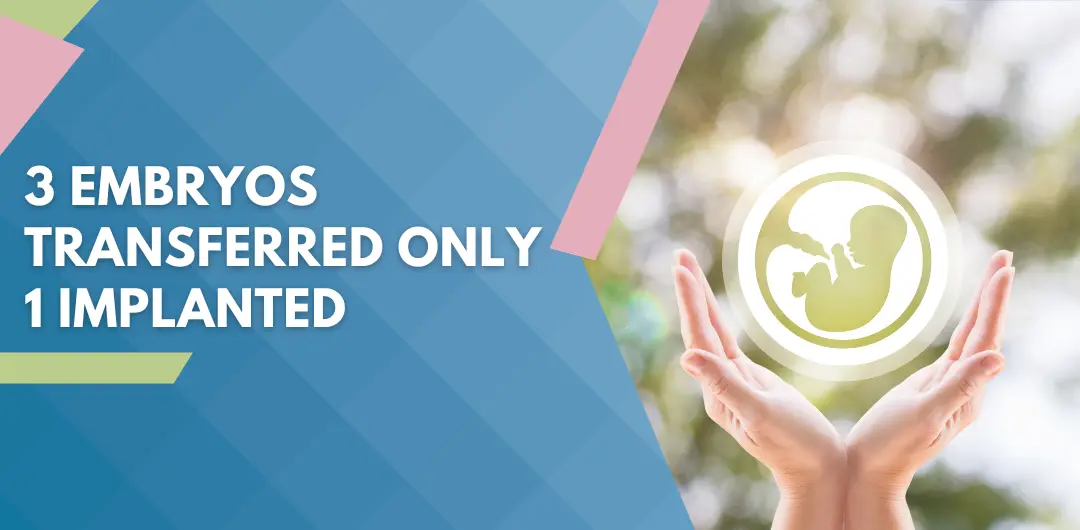Embryo transfer is a critical aspect of IVF, or In Vitro Fertilization, where embryos are placed into the uterus to achieve pregnancy. However, in some cases, despite multiple embryos being transferred, not all may successfully implant. For example, there have been cases where while there were 3 embryos transferred, only 1 implanted. Dr. Mohit Saraogi of Saraogi Hospital, a well-known IVF Centre in Mumbai, explains:
“IVF involves extracting mature eggs from a woman’s ovaries, fertilizing them with sperm in a lab, and then implanting the resulting embryo(s) into the uterus. Through careful selection and laboratory techniques, we can increase the chances of pregnancy.”
Are you curious why, out of the 3 embryos transferred, only 1 implanted successfully? Let’s dive into the intricacies of this phenomenon and understand the science behind it.
Embryos Transferred, Only 1 Implanted – Why?
Understanding the 16 days after embryo transfer

An implantation means the embryo has attached to the uterine lining potentially leading to a successful pregnancy. When 3 embryos are transferred and only 1 implants, the other 2 embryos are absorbed by the body or expelled naturally.
This can occur due to:
- genetic or chromosomal abnormalities in the embryos
- the health of the uterine lining
- timing issues related to the implantation window
Dr. Mohit Saraogi, a renowned IVF doctor in Mumbai, adds:
“Each embryo has its own likelihood of success based on these factors. The primary focus is to carefully monitor the health and development of the successfully implanted embryo to ensure a healthy pregnancy progresses.”
Are you experiencing difficulties with fertility? Please consult a certified IVF doctor to explore your options.
Now, let’s understand…
Why Are Multiple Embryos Transferred in IVF?

Multiple embryos are often transferred to increase the chances of a successful pregnancy. This practice is based on the understanding that not all transferred embryos will implant. Transferring multiple embryos raises the likelihood of a viable pregnancy, especially in older patients or those with previous failed IVF cycles.
Fortunately, state-of-the-art facilities like Saraogi IVF Centre in Mumbai use advances in reproductive technology and embryo screening. Cutting-edge techniques help them tailor the number of embryos transferred to reduce risks and optimize outcomes.
This brings us to a pivotal question…
What Are the Success Rates of Embryo Implantation?
The success rates of IVF treatments and embryo implantation range between 30% and 40%. The overall pregnancy rates per IVF cycle ranges from 30% to 45%. These rates are influenced strongly by factors like the woman’s age, embryo quality, specific fertility issues, and the quality of the IVF clinic and laboratory.
Technological advancements and improved protocols in both global and Indian IVF centers continue to enhance these success rates over time. For instance, Saraogi IVF Centre in Mumbai has an impressive IVF success rate exceeding 45%, which is above industry norms.
Wondering about your chances of success with IVF? Please consult an experienced fertility doctor to understand how these statistics apply to your unique situation.
Transferring multiple embryos can increase your chances of pregnancy, but it also comes with risks. Let’s take a closer look at these risks and how they might affect you.
Risks of Transferring Multiple Embryos
 Multiple Pregnancies: Increases the risk of twins or triplets, which can lead to complications for both the mother and the babies.
Multiple Pregnancies: Increases the risk of twins or triplets, which can lead to complications for both the mother and the babies.
Preterm Birth: Higher chance of delivering before full term, leading to potential health issues for the newborns.
Low Birth Weight: Babies born from multiple pregnancies often have lower birth weights.
Miscarriage: The risk of miscarriage is slightly higher with multiple pregnancies compared to single pregnancies.
Pregnancy Complications: The mother is at a higher risk of pregnancy complications such as gestational diabetes, preeclampsia, and placental problems when carrying multiples.
Here are some effective strategies that can help you improve your odds and achieve your dream of parenthood.
How Can You Improve Embryo Implantation Success?
 Dr. Saraogi stresses focus on both the quality of embryos and the receptivity of the uterine environment:
Dr. Saraogi stresses focus on both the quality of embryos and the receptivity of the uterine environment:
Optimal Embryo Selection: Using advanced techniques like preimplantation genetic testing (PGT) to select the healthiest and genetically viable embryos for transfer.
Enhanced Embryo Culture Conditions: Utilizing the best laboratory practices to ensure that embryos are grown in conditions that mimic the natural environment of the uterus, which can improve their quality and viability.
Endometrial Receptivity Analysis: Assessing the receptivity of the uterine lining at the molecular level to determine the optimal time for embryo transfer, often referred to as the “window of implantation.”
Personalized Embryo Transfer Strategies: Tailoring the number of embryos transferred based on individual patient characteristics and previous IVF outcomes to maximize success while minimizing risks.
Supplemental Progesterone: Administering progesterone to support the endometrial lining and enhance its receptivity for implantation.
Dr. Saraogi, a seasoned IVF doctor in Mumbai, further advises:
“Maintaining a balanced diet, regular exercise, and avoiding smoking and alcohol can positively impact implantation success. Reducing stress through relaxation techniques, such as yoga and meditation, can improve health and fertility. Additionally, you must avoid environmental toxins and endocrine disruptors that can negatively affect hormone levels and reproductive health.”
Are you looking to enhance your chances of a successful embryo implantation? Please visit a qualified IVF specialist for support and guidance.
Conclusion
Embarking on the journey of IVF can be both hopeful and challenging. Multiple embryo transfers are sometimes performed to increase the chances of pregnancy, particularly in assisted reproductive technologies like IVF. However, it is not uncommon for only one embryo to implant despite transferring multiple. Understanding the process and potential outcomes is crucial for managing expectations and preparing for the road ahead.
Dive into our FAQ section to uncover the answers behind embryo implantation.

